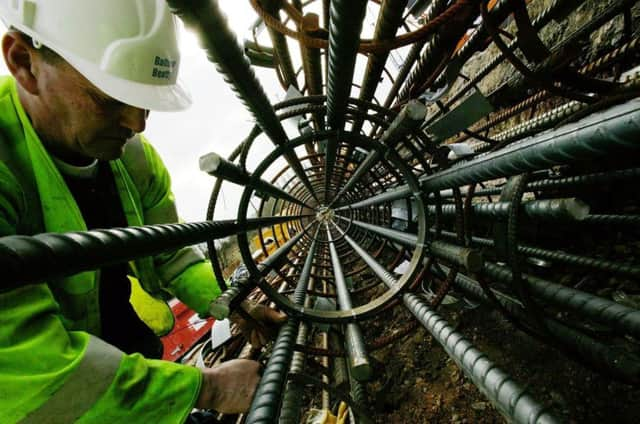Martin Flanagan: Balfour Beatty back in the black
This article contains affiliate links. We may earn a small commission on items purchased through this article, but that does not affect our editorial judgement.


In 2014 the group fought off an opportunistic takeover bid from rival Carillion amid a slew of profit warnings. Now Balfour has swung back into the black to the tune of £8 million from two years of losses, including a £199m deficit in 2015.
• READ MORE: Balfour Beatty joins ‘returnships’ revolution
The group behind Crossrail and the transformation of the former Olympic Stadium into West Ham FC’s ground had become too complex and bloated.
Advertisement
Hide AdAdvertisement
Hide AdChief executive Leo Quinn took the helm in 2015, and he has shown acumen in getting to grips with the problems. He has simplified the operating structure, next up is a plan to restore profit margins to the industry standard of 2 to 3 per cent.
In the next few years Quinn wants to be part of the UK’s three biggest infrastructure projects: the High Speed 2 (HS2) rail link, the new nuclear power stations at Hinkley Point C and Wylfa, and the third runway at Heathrow Airport. Across the Atlantic, President Trump’s major infrastructure plans also open up possibilities.
Balfour has already been boosted stateside by its biggest US contract win to date last year, a £525m deal to electrify 52 miles of Californian railway between San Francisco and San Jose.
Quinn has taken a lot of costs out of the business, and Balfour’s various operations no longer compete with each other. A very good brand became tarnished by operational complexity. Quinn decided that the best way back was to give the brand a KISS – Keep It Simple, Stupid.
Sky’s the limit
Culture Secretary Karen Bradley is right to refer 21st Century Fox’s proposed £11.7bn takeover of satellite broadcaster Sky to the scrutiny of Ofcom and the Competition & Markets Authority.
The issue of whether it would give Rupert Murdoch, whose Fox group already owns 39 per cent of Sky, undue influence over the UK media scene is still a live one after the magnate’s first attempt to take control of the broadcaster in 2011 through his News Corp business was derailed by the phone-hacking scandal.
That is not to say the bid should be automatically rejected, but it should be looked at and public interest concerns satisfied.